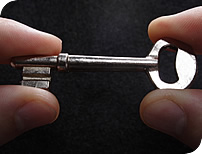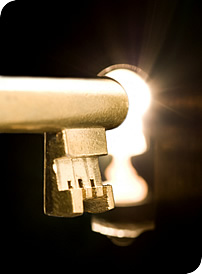For some people, the present is marred by events that happened in the past, or apprehension about the immediate future.
 When the Past Invades The Present
When the Past Invades The Present
Post Traumatic Stress Disorder (PTSD) is a well documented issue that affects people in all walks of life. It may have originated with an event that happened recently or a long time ago, or it may have arisen over time due to the situation or environment. Whatever the cause, its effects can still be very much a part of many people’s present.
PTSD has been described as a part of yourself that has become stuck in the past while the rest of you has moved forward in time. It can be extremely debilitating, and usually causes distressing physical symptoms, which can include pain, sleep disturbances, muscle tension, and palpitations.
Although much of the early research was done on returning war veterans, it has now become clear that childhood events, motor vehicle accidents, loss of loved ones, loss of security and even just being exposed to reports of trauma can cause PTSD. Secondary PTSD has now been reported in children who watched 9/11 coverage, and in people who are not directly involved in a crisis but who are exposed to those who were. These people can experience unexplained feelings of anxiety or hypervigilance (looking for sources of threat), but not have identified why.
It is not necessary to revisit a trauma to gain relief from its effects. Although a PTSD sufferer assumes that they are afraid of the memory itself, it is in fact the feelings that they experience in their bodies that are so distressing. The Somatic Experiencing (SE) technique, developed over 40 years by American psychologist Peter Levine, works by separating the memory from the feelings it produces. By becoming aware of the body sensations (as the term “somatic‿refers to) and grounding them in the present, the associations can be defused.
SE after a car crash
Whiplash is not always the only side effect of being involved in a motor vehicle accident. Sometimes the neck muscles continue to tighten reflexively when getting into a car, or at any time when you are under stress. Sometimes flashbacks occur, or increased stress when returning to driving.
SE equips a person with a way of understanding their experience, and a gentle self help strategy to regain a sense of equilibrium.
SE and the sportsperson.
In some sports, there are real hazards, and accidents happen. Racing skiers crash, and cyclists can suffer traumatic falls. Footballers and rugby players can sustain severe injuries. These events can leave residual effects which impair future performance.
Poor concentration, flashbacks, tension, anxiety and decreased “feel‿are just some of the symptoms that can affect a sportsperson. SE can help with the process of reintegrating these sensations and overcoming their effects.
SE and the Horse Rider
Specific and non-specific fears are common among people who ride. Many people have experienced accidents in which they or their horse have been injured, or which has simply shaken their confidence. Sometime it is the fear of what might happen rather than what already has happened that becomes a barrier. Pushing yourself into the situation often does not help, as the horse picks up the tension and becomes worried about where the threat is.
SE can help you to stop the upward spiral of tension so that you enjoy your riding again.
Performance Anxiety
 People in many walks of life experience distressing physical symptoms in response to an activity that is part of either their work or recreation. In business, people are often called upon to make presentations but become clammy palmed and dry mouthed at the very thought of facing the board room. Musicians and dancers can become tense and even trembly just prior to walking on stage, and for some, it can even prevent them from continuing in their careers.
People in many walks of life experience distressing physical symptoms in response to an activity that is part of either their work or recreation. In business, people are often called upon to make presentations but become clammy palmed and dry mouthed at the very thought of facing the board room. Musicians and dancers can become tense and even trembly just prior to walking on stage, and for some, it can even prevent them from continuing in their careers.
The performance event itself is not life threatening, but the physical reactions that can arise makes it feel as though it is.
Somatic Experiencing can help to defuse these symptoms, allowing you to perform in a more relaxed and focused state.

